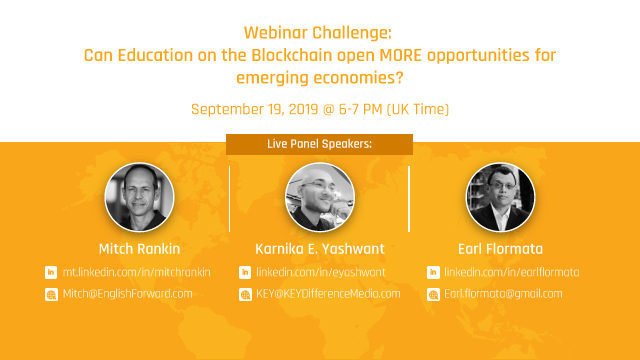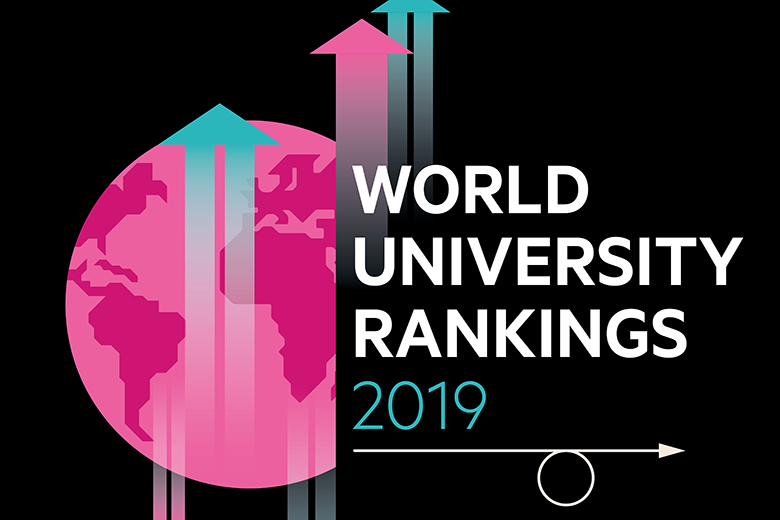For the last decade, blockchain has been the most advanced technology as a result of the potential it possesses. Developed nations like the US, the UK, Switzerland have started exploiting the technology, but where do the developing nations stand? Countries like India, South Africa have shown a huge potential, but can they match the developed countries?
Recently, a webinar titled “ Can education on the blockchain open MORE opportunities for the emerging economies?” This enlightening webinar was hosted by Mitch Rankin, English Forward Co-Founder and CEO, Karnika Yashwant (Mr. KEY), EnglishForward Co-Founder and CMO, and Marketing Strategy Expert Earl Flormata.
Various questions were presented to the panel by the viewers. One of them was how can blockchain help the emerging economies when it is unable to provide education to its huge population. Mr. Key told that the blockchain has the potential to reach the places, where traditional teaching can’t go. With technology, everything will be digitized and accessible in even the remotest of areas.
Blockchain use in education sector opens new opportunities
The biggest revolution that blockchain will bring to the education sector is people all over the world can collaborate to build up resources and a community to help others. Even if someone is sitting in a remote village in Africa, they have access to the knowledge that people in the US do. This would make the complete system universal and there will be no piracy.
Earl believes that developing countries, if they move to the blockchain, will create more opportunities for the learner as well as the teacher on a single platform and everything would be done transparently, hence reducing the corruption.
Mitch Rankin emphasizes that education is the only thing that separates a developed nation from a developing nation. Blockchain will give opportunities to everyone, regardless of their background.
Another point of concern is the number of dropouts currently. It can be due to any reason, maybe financially or no longer accessible. But in 5-10 years if everything is online and modulated, will these numbers drop?
Mitch believes that at this moment, “the level of the playing field is not even”. There are countries where women don’t get an education, special needs children don’t have that access as others do. With blockchain, these people can thrive on the global level.
Blockchain and tokenization help the teachers and learners
Today, especially in a developing economy, it is not easy for teachers to sell their skills to everyone. Teaching, where it should be considered the best profession, is under-appreciated and underpaid. Here comes tokenization into play. The token system will not only enable teachers to reach out to everyone but will reward them manyfold.
Mr. Key expressed that all this is good, but the challenge still arises is why would people change from the current technology and move to blockchain? What would be the biggest challenge for blockchain to take over?
Earl, quite intuitively believes that convincing the “old guards” to move from one system to another is the most difficult job. They will lose their stronghold, their power. Mitch cited that he thinks the new system should be easy to access and benefit the user too. If both these targets are achieved, there would be a smooth implementation of blockchain. Of course, it will take time, but eventually, it will succeed.
Once the blockchain is implemented, the larger organizations will help. As far as teachers are concerned, they can monetize their content, there will be better security for their content and it can not be copied. The playing field would be leveled and the ones who were at the bottom will benefit the most. Teach the way you want to, learn the way you want to.







